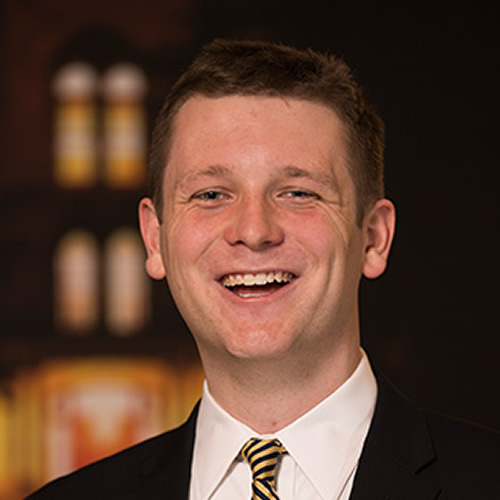Session 3: 2:15 PM - 3:45 PM
Panel C: The Collective Action: Discerning Our Perceptions of the Environment
C103 Hesburgh Center
Moderated by Sisi Meng
While environmental problems may seem to be one of the greatest barrier to a community’s development, the local perspective of these resources is just as significant. This panel investigates the perceptions of individuals within communities where a cultural value is tied to the use such resources.
Perceptions of Religion and Water in a Developing World
Juliet Risko, Dickinson College
Abstract: Today, environmental degradation is a prevalent issue in the developing world, and certain communities feel the impacts of this loss disproportionately. Rural communities are especially affected by the decrease of natural resources. This study focuses on the rural area of Pauri Garhwal in Uttarakhand, India to gain an understanding of the relationship between traditional rural societies and the environment in order to improve conservation of our natural world. It aimed to investigate how perceptions surrounding natural water springs influence the extent to which they are used, depended on, and conserved. Additionally, the role these perceptions play in the overall community health was also explored. Through informal interviews (n=15), personal observations, and case studies, it was found that this rural community of lower socioeconomic status is dependent on natural springs as a resource for everyday use, Hindu religious practices and spirituality, and as a method of community bonding. It also became apparent that the community perceptions surrounding springs are directly connected to their preservation in the community. Issues such as migration, resource conservation, religion, and shifting priorities were common themes in the interviews, and individuals have observed changes in the quality of the natural springs as a result of these changing perspectives. Thus, it is proposed that further research on this topic could improve the methods which are used to protect these sacred springs and other elements of the ecosystem – in a way that incorporates the knowledge and passion of the people who live among them in our developing world.

Community Perspectives on Clean Water Access in Léogâne, Haiti
William Cunningham, The University of Notre Dame
Abstract: Even before the devastating 2010 earthquake, Haiti was known as the “Republic of NGOs”. Since 2015, the number of organizations has only grown, yet as of 2015, only 64% of Haitians have access to a basic water source. Problematically, most organizations made little effort to engage locals in the rebuilding process. Our research centers around the idea that community participation provides better solutions and helps build local capacity. We asked the question: what are the biggest problems related to water in Léogâne, according the people themselves? Our research was conducted in October 2018 in Léogâne, Haiti. Through two focus groups (n=6), a mobile survey (n=24), and a brainstorming session (n=5), we explored common practices related to sourcing, treatment, transportation, and storage of water used for drinking and food preparation. Our participants, recruited by leaders of the Innovation Clubs established by Engineering2Empower, were diverse in geography, gender, age, and socioeconomic status. Our research revealed the complexity of water access in Léogâne. The problem is not solely that water is dirty, but that people can’t tell whether it is clean. Additionally, there is lack of knowledge about how much treatment to use, territorialism surrounding water sources, and seasonal contamination effects due to flooding and lack of proper drainage. I will present a number of insights gained from the research and brainstorming process, focusing on the perspective of the community members themselves. I intend to share written results as well as photo and video sources collected during the mobile survey.

Public perception of issues and policies regarding plastic marine pollution in coastal communities of Northeast Taiwan
Jackie Brebeck, The University of Notre Dame
Abstract: The abundance and longevity of plastic pollution in our oceans is a pressing global issue. In addition to harming marine animals, plastic marine pollution harms humans through contributing to climate change, reducing food and income in coastal communities, and threatening the health of the global food chain. Human behavior is the source of plastic pollution; understanding what motivates behavior that impacts this issue is essential to designing successful mitigation strategies. In my research, I explore the public perception of issues and policies regarding plastic marine pollution in coastal communities of Northeast Taiwan. Research was conducted through semi-structured interviews in two coastal locations in Northeast Taiwan; 50 participants were selected through opportunity sampling. Theme analysis indicated that that throughout the three sites, there is much awareness of the plastic marine pollution issue. The main reasons people were concerned about plastic marine pollution were economic loss and the risk of ingesting microplastics. Perceptions of efficacy of community action or government action to reduce marine plastic pollution varied among the sites depending on actions occurring in each one. Few drew connections from the local pollution problems to global impacts. The hope of this study is to inform and spark more successful attempts at reducing the amount of plastic marine pollution in coastal communities. This study will also make recommendations of policy and/or NGO initiatives that the results indicated could be accepted and effective in the coastal communities of Northeast Taiwan.
Bio: Jackie is an accounting major in Cavanaugh hall at the University of Notre Dame. On campus, she is a member of the Trademark Licensing & Human Rights Committee, the Taiwanese Student Association, and Unleashed. Jackie’s main research interests are sustainability, income inequality, and pollution.





